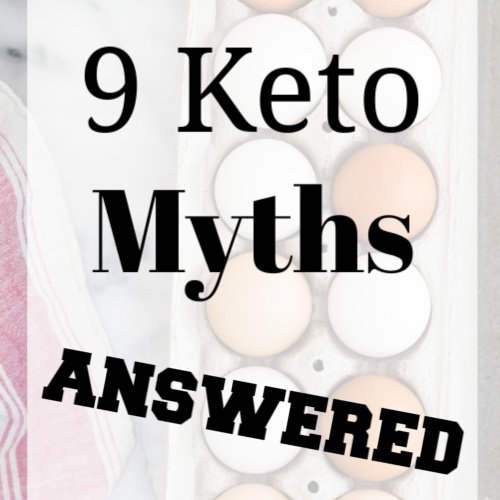
9 Keto myths and the real truth to the misconceptions.
The ketogenic diet has been around since the 1920s, but with it’s increased popularity over the last 5 years, a lot of misinformation is getting tossed around. There have been times I want to pull my hair out at all the misconceptions people are choosing to believe, without proper research.
Before I jump into the 9 keto myths, I just want to say that you can prove almost anything by researching different studies (and websites for that matter). What most people fail to look at in their research is who funded the study, what were the control factors, and when the study was conducted. There are many studies from the 60s, 70s and 80s that have since been disproved, but people still fall back on those old studies to shun certain diet and food choices.
And while yes, I do a lot of research on a variety of studies, I mainly rely on independent studies (not funding by a particular group, say the sugar industry or the dairy counsel), and outcomes.
Here are 9 keto myths and the real truth behind them.
Ketosis and Ketoacidosis are the same thing.
Holy cow no. Ketosis is when your body is burning fat for energy instead of glucose. Ketoacidosis (or DKA, short for diabetic ketoacidosis) is a potentially life-threatening state in which the body’s blood is highly acidic because of too high of ketone levels. This condition usually occurs in type 1 diabetics. DKA can be caused by illness, improper diet, or not taking an adequate dose of insulin.
All people eat on keto is fat and meat.
This is a big one. Many folks think that on a keto diet you don’t eat vegetables. But that is not true at all. Veggies are definitely recommended, and around 20% of your daily calories should come from protein. When protein intake gets too high, it is converted to glucose (aka sugar), causing a blood-sugar spike and an anti-ketogenic effect. One of the goals on keto is to keep glucose levels low, so taking in too much protein would have the opposite effect.
Your body needs carbs for energy.
On the contrary, our bodies run perfectly well while burning fat. And while keto doesn’t completely eliminate carbs, it makes them low enough for you to be in ketosis, thus burning fat for fuel instead of glucose.
Keto is the same thing as Atkins.
I hear this one all the time. Keto is just a revival of the Atkins diet. And this couldn’t be further from the truth when it comes to low carb diets. First, eating in a ketogenic manner has been around for hundreds of years. And like I mentioned above, it was given a name in the 1920s by researchers at Johns Hopkins Medical Center who were treating patients with epilepsy.
Atkins promoted eating too high of protein and not the right fats. I know people who would go to Jack-In-The-Box, order their big bacon cheeseburger, take the buns off and eat it. This is not what the keto diet promotes. To get the most out of the keto diet, eat clean, unprocessed foods, and avoid fast food, fried foods, vegetable oils, and low quality meat and cheese. Go for foods like organic cold-pressed oils (virgin olive and coconut oils) grass-feed and pasture-raised meat, grass-fed butter, wild-caught fish and free-range eggs.
Keto will increase your cholesterol.
Repeat after me: Cholesterol is not the enemy! It is necessary for our bodies to function properly. Cholesterol makes estrogen, progesterone, testosterone and DHEA. It repairs damaged cells and helps extend cell life. It also helps combat inflammation, and much, much more!
Keto has been proven to lower your LDL (bad) cholesterol and increase HDL (good) cholesterol. If you have a good doctor he will do additional blood work to check particle size of your LDL. You want to see large, puffy particles and not small, dense ones. Large puffy particles equate to normal cholesterol and triglyceride levels.
Eating that much fat will make you fat.
Eating more fat doesn’t mean eating more calories. Also, people who typically eat high fat are also eating highly processed carbs and sugar. Keto emphasizes eating healthy fats like avocado, coconut, grass-fed butter and nuts.
Also, excess body fat is created when excess carbs are stored. If you increase your dietary fat and reduce your carbs (especially refined carbs), you will stay full longer, thus reducing overeating.
You can’t eat vegetables on Keto
Actually the opposite is true. While starchy veggies (corn and potatoes) are off the table, vegetables like leafy greens and broccoli are totally okay to eat.
You don’t get enough vitamins and minerals on Keto
If you aren’t doing keto right then yes, you could be losing out on certain vitamins and minerals. But if you’re doing a well formulated ketogenic diet, then you will be eating enough of the right foods to get at least the recommended daily minimum, if not more.
Keto isn’t sustainable
Most people think a keto diet isn’t sustainable. And for some it may not be. But for a lot of people keto is a lifestyle, not just a tool to lose weight. I know quite a few people who cycle in and out of ketosis and have been able to sustain this lifestyle for years. Keto has been proven to lower inflammation (which is a root cause of most chronic diseases around today), increase cognitive function (aka improve your focus and brain clarity), and actually decrease bad cholesterol levels (like I mentioned above). It’s a tool for many with seizure disorders, for people who gluten sensitive or intolerant, and for kids with autism disorders. The longest recorded study of the ketogenic diet was over a 10 year period, and no significant vascular, heart or other risk factors were recorded (read the study HERE). So I’d say it’s quite sustainable.
And there you have your 9 keto myths….answered. If you make the right food choices, the keto diet can be a great lifestyle for many. I’ve seen people thrive, while for others it wasn’t a fit. It’s all about finding the right way of eating for you. If the standard American diet isn’t working for you, maybe give the keto diet a try.
You can also read why we started eating a modified keto diet.


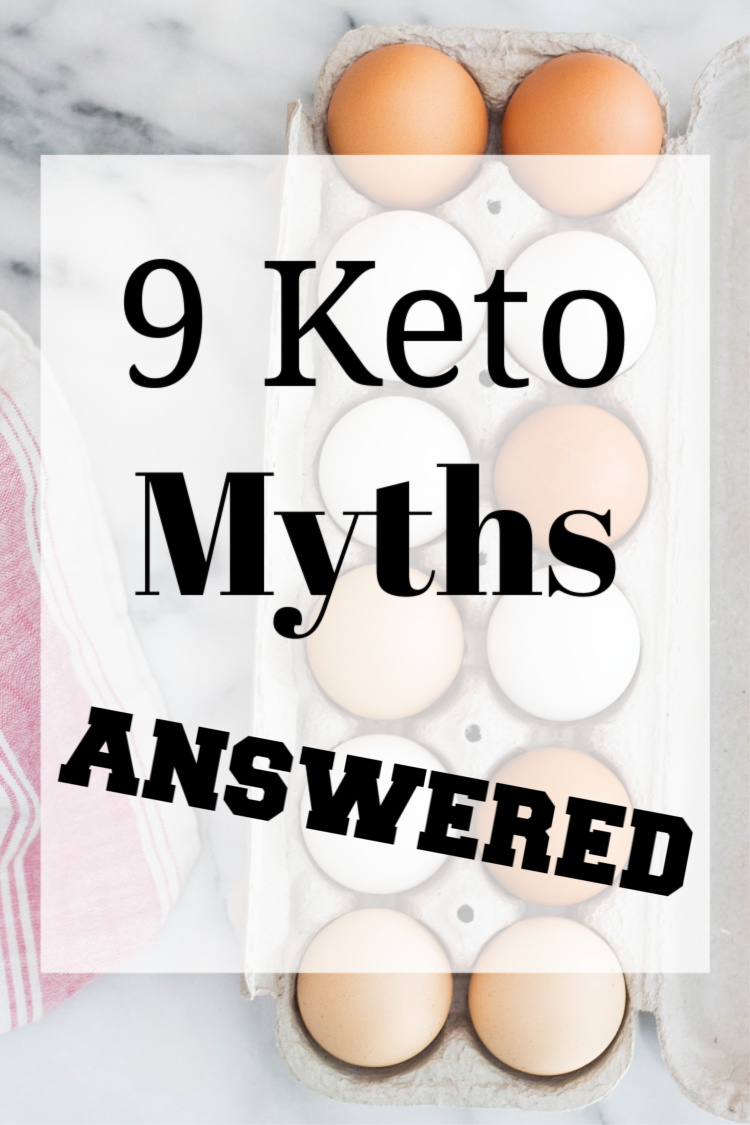
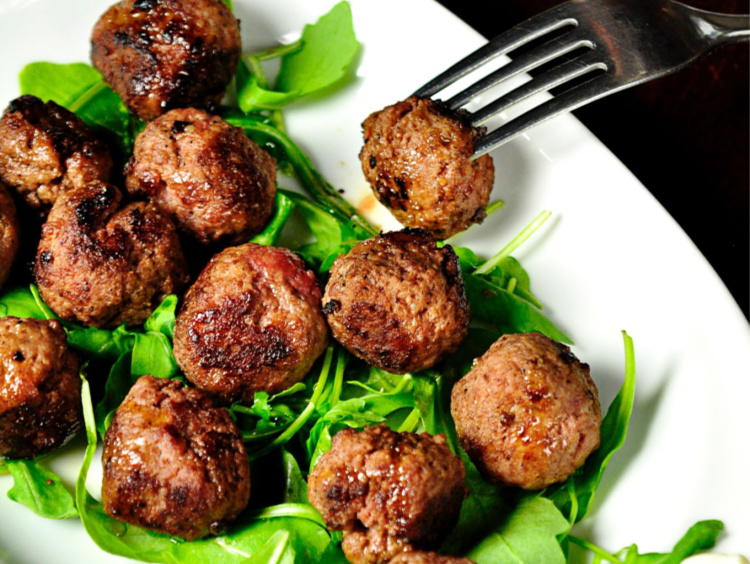
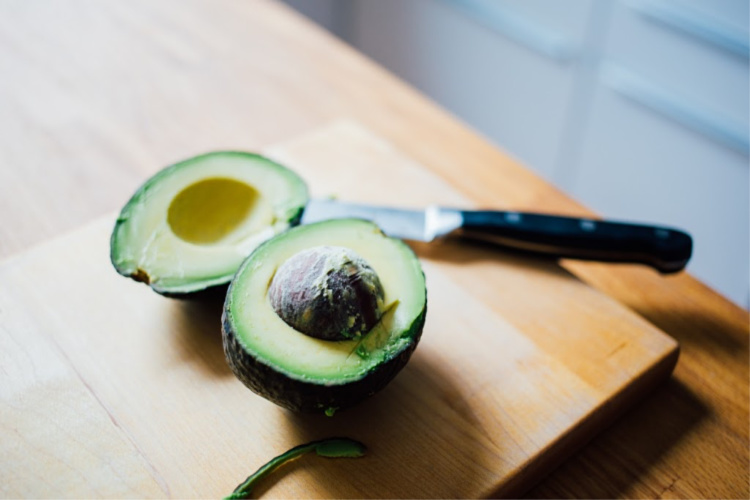
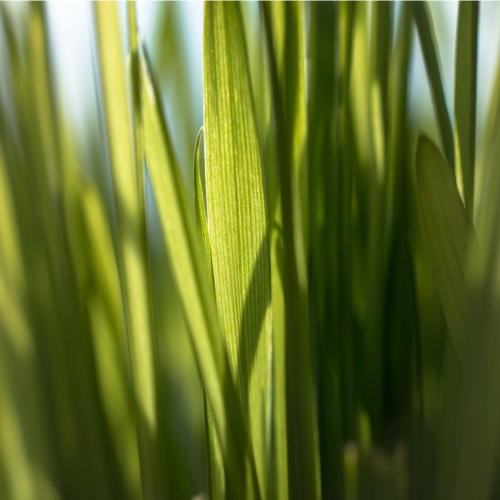

It still cracks me up that people think they get fat from eating fat, and that sugar substitutes are they way to stay lean. Hahaha! Show me one person who drinks Diet Coke daily who’s thin. One. Just one!